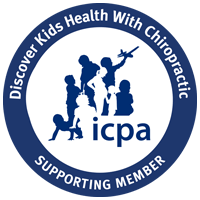Decoding Autism: Exploring Genetics, Triggers, and Hope

As parents, we’re constantly navigating the unknown, seeking answers and solutions for our children’s well-being. One of the most daunting challenges many of us face is understanding autism and its causes. With autism rates skyrocketing, affecting 1 in 36 children today, it’s important that we look into the factors contributing to this complex condition.
Trying to understand autism often begins with one burning question: Is autism genetic? Still today, many of us hold onto the assumption that genetics and heritability solely explain the sharp increases in autism diagnoses and the wide variation in symptoms across the spectrum. However, we’re here today to contest that assumption and introduce an empowering new perspective.
While genes undoubtedly play a role through genetic predisposition, even traditional medical doctors and media outlets are starting to acknowledge the existence of an “environmental” factor. However, they often stop short at this acknowledgment, leaving the concept of the environment as a vague blanket statement. Here’s where we differ – our goal is to take you deep into the real root causes and known triggers of Autism Spectrum Disorders (ASD).
Today, we understand that there’s a full-on environmental “Perfect Storm” brewing for children struggling with autism, and genetics only plays a small part in the bigger picture.
This blog is for you, parents, and caregivers of children anywhere on the autism spectrum seeking clarity, community, and care options that dive deep into the true root cause of autism. Rather than simply attributing it to genetics and hoping to navigate around its challenges, we aim to provide understanding and actionable solutions.
We’ll introduce what we call “The Perfect Storm,” where accumulated stressors and dysfunctions disrupt nervous system function over months and years, altering childhood development. We want to provide you with drug-free answers that will help your child through their storm.
What “Environmental Factors” Contribute to Autism?
We know without a doubt that genetics alone don’t tell the full story when it comes to autism. While over 100 genes contribute to autism risk, mutations account for only 10% of cases. This prompts us to explore the environmental factors that contribute to this condition.
So, what are these environmental factors that matter most? As Neurologically-Focused Chiropractors, we go way back to the beginning. Prenatal or maternal stress emerges as a significant factor in the development of autism. Pregnancy can trigger the start of the Perfect Storm, where your stress as a pregnant mother can affect your baby’s development. If you’re stressed during pregnancy and stuck in a fight-or-flight sympathetic stress response, your baby shares those stress hormones through the umbilical cord, which connects your nervous systems.
Birth trauma also plays a pivotal role. During childbirth, interventions like forceps, vacuum extraction, and c-sections can worsen the storm. They exert great pressure on your baby’s head, neck, and delicate brainstem, potentially causing significant physical trauma, especially to the brainstem and nervous system.
This leads to subluxation, and when your child’s nervous system is stressed to the max, other challenges arise. Their immune and digestive systems suffer, resulting in frequent illnesses. Traditional pediatricians often prescribe antibiotics and other medications, which can make things worse by disturbing the gut-brain connection.
And it doesn’t end there. Factors such as exposure to electromagnetic fields (EMFs), household toxins like mold, chemicals in everyday products, and toxins in medications and medical interventions should all be considered.
Environmental Factors Lead to a Dysregulated Nervous System
What do these stressors and toxins do to a child’s developing nervous system? They create a neurological “tipping point,” where the delicate balance is disrupted, and the nervous system becomes locked into a state of sustained fight-or-flight response.
This nervous system dysregulation has far-reaching implications, affecting various aspects of a child’s health and development. From compromised gut and immune function to challenges with motor skills, sleep, and inflammation, the ripple effects are profound.
As these challenges accumulate, the brain and nervous system struggle to cope, manifesting in the core elements of autism. Communication difficulties, social interaction challenges, sensory processing issues, stimming, and restricted/repetitive behaviors become apparent indications of this underlying dysregulation.
Neurologically-Focused Chiropractic Care Can Help
So, parents, if your child has been diagnosed with autism and you’ve been told that there’s nothing you can do to help because it’s “purely genetic,” it’s time to go deeper. Understanding the role that environmental factors may have played will help you discover how your child can truly heal and experience a significantly improved quality of life.
At Thrive Family Chiropractic, we understand the deep, true neurological reasons behind the rise in autism, and we are able to use advanced technology, INSiGHT Scans, to find subluxation and neurological imbalances. Improvement is possible! By targeting root causes, we can gradually restore nervous system function through gentle chiropractic adjustments. Don’t hesitate to reach out to Thrive Family Chiropractic today and learn that shifting your framework empowers you to open up new paths to progress for your child. If you are not local to us, check out the PX Docs directory to find a PX Doc near you!


